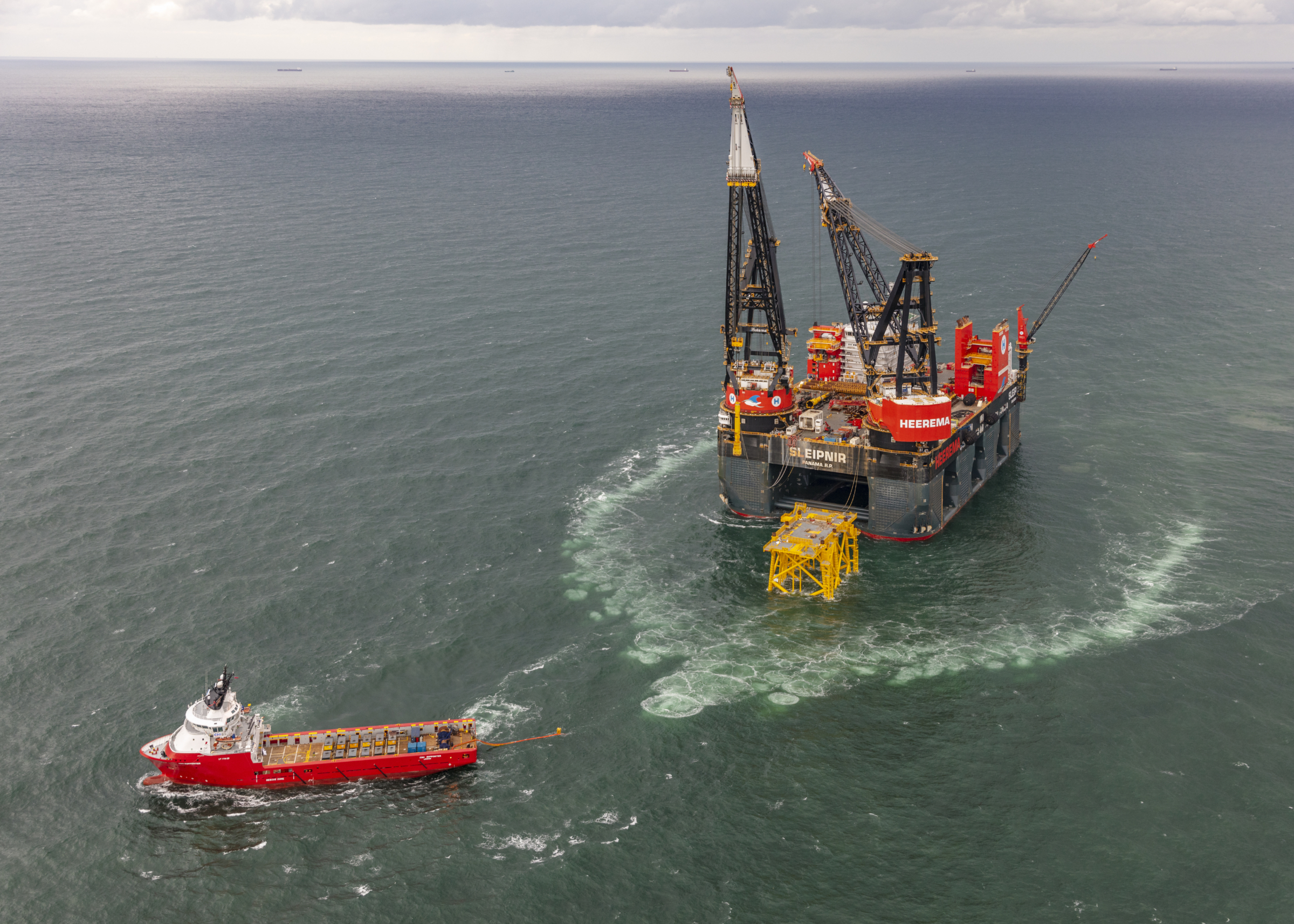
Thanks to increasingly stricter environmental regulations regarding offshore activities and construction, bubble curtains have become a vital aspect in multiple steps of the process. This leads to an increase in demand and Atlas Copco Rental meets that demand by investing in electric-driven and efficient diesel-driven certified 100% oil-free air compressors suitable for offshore applications.
Essential for offshore projects
Marine mammals use sound pulses or ultrasound to communicate and orient themselves in the vastness of the ocean. However, as we increase our activities at sea, the sound that we cause can confuse and eventually harm these marine animals. Drilling, prospecting activities, pile driving, blasting, etc. generates a substantial amount of noise under water. A constant sound louder than 160dB(A) can already severely disturb marine life. Reducing underwater sounds is not only a goal. It is an obligation.
To help mitigate damage to the environment and protect marine life, a literal curtain of bubbles is put into place around the stationary application. The bubble curtain acts as a barrier, which drastically reduces the effects of both sub-sea shock and sound waves. Bubble curtains not only reduces sound but also create a screen that protects, deflects, herds, and guides fish and particular species away from water intakes, dams, or contaminated areas.
A weighted tubing system is placed on the seafloor around the site. Compressed air creates bubbles. However, not just any compressed air. 100% oil-free compressors supply the air Atlas Copco Rental uses to produce the bubbles. Only 100% oil-free ISO 8573-1 CLASS 0 (2010) certified air compressors can eliminate the risk of oil contamination in the compressed air system – and, in turn, the bubble curtain. Compressors with oil removal filters deliver a solution that is often referred to as ‘technically oil-free air’. However, to achieve acceptable air quality with oil-injected compressors, it is necessary to install multiple expensive components. Only 100% oil-free air compressors will be able to deliver air with Class Zero purity and can limit all risks of contamination and possible dangers for business and environment. There is no point in risking environmental oil pollution, even in small quantities.
Beyond the ocean
Plastic waste is not something we only find on the other side of the world, or in the ocean. It is present in local waterways as well, where it brings great harm to the environment and human beings. Aquatic animals are tangled in plastic. Microplastics pose a health risk from the smallest to large organisms, and ships suffer damages. Different institutions worldwide, such as the United Nations, Ellen McArthur and the World Health Organization recognise this increasing problem. Bubble curtains are also being implemented in sweet water applications across Europe to help control the flow of debris, like plastics. The bubble curtains form a barrier that stops it from floating into smaller waterways or vice-versa.
“With global temperatures rising, bubble curtains will play an ever-increasing role in sweet water applications as well. For example local waterways where our equipment can help prevent salinisation. Atlas Copco has the oil-free equipment and expertise to assist where necessary.”
Kris Herremans , Marketing Manager
As sea levels rise, lower coastal areas are inundated with saltwater, which gradually contaminates the soil. Climate change has increased the frequency and severity of extreme weather events. Including droughts and heatwaves. This leads to more intensive use of groundwater for drinking and irrigation, which then further depletes the water table and allows even more salt to leach into our soil. In an early stage, it influences the metabolism of soil organisms and reduces the soil’s quality. In an advanced stage, it leads to the destruction of all vegetation and other organisms living in the soil. Fertile and productive land becomes barren. To prevent salinisation, the bubble curtain prevents salt and fresh water from mixing. Since saltwater is heavier than fresh water, the salt water in the lower layer of the water flows into the lock when the lock gate is opened. This means that the freshwater is back in the upper layer. When the lock is opened on the other side, the saltwater then flows back out of the chamber to the fresh side, and the chamber is filled with fresh water.
The role of oil-free air is vital for environmental reasons as the air is in direct contact with the water. There is no point in risking environmental oil pollution. Even the smallest quantities could have lasting, harmful effects on marine life and the environment. Only class 0 gives you 100% security!